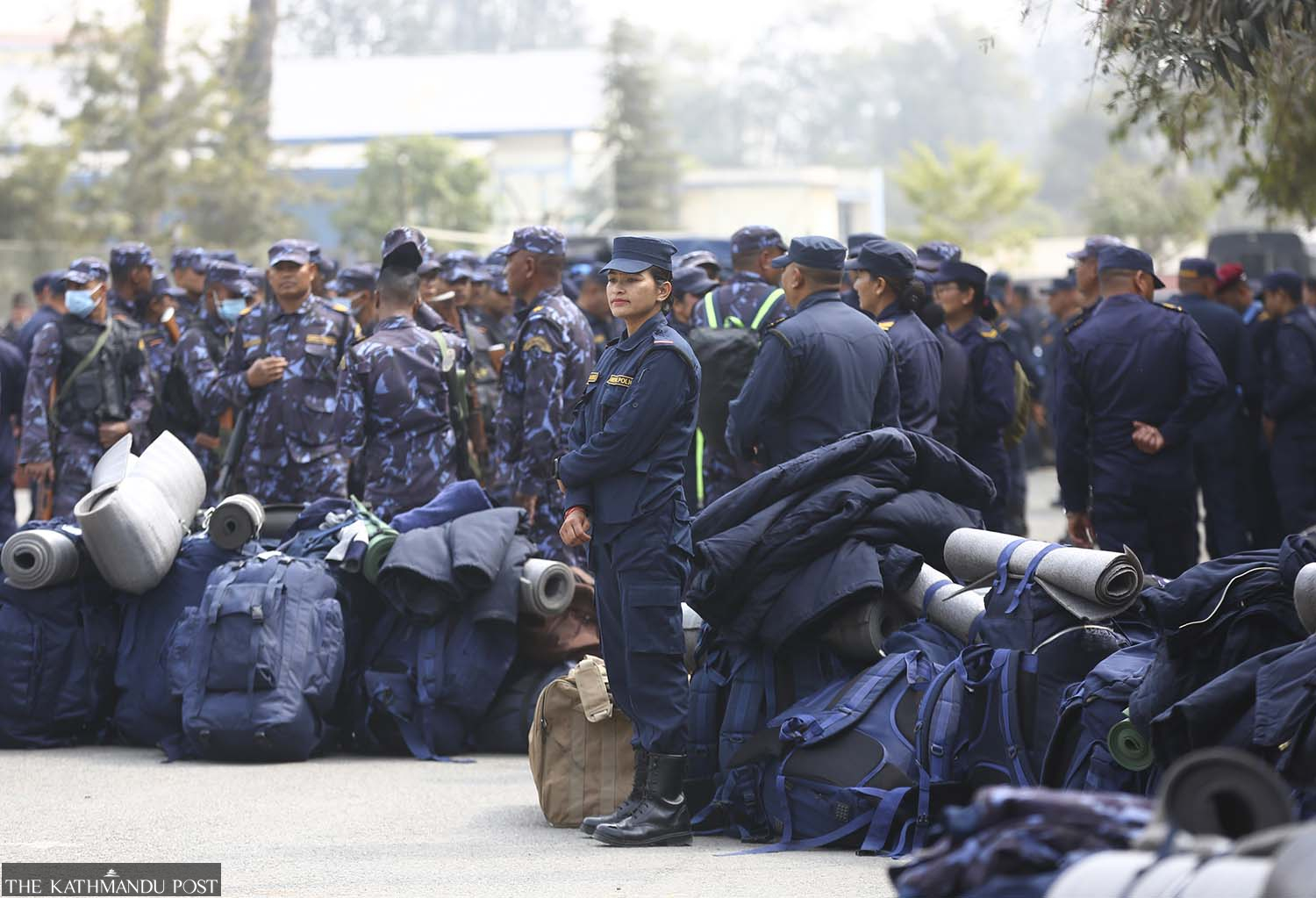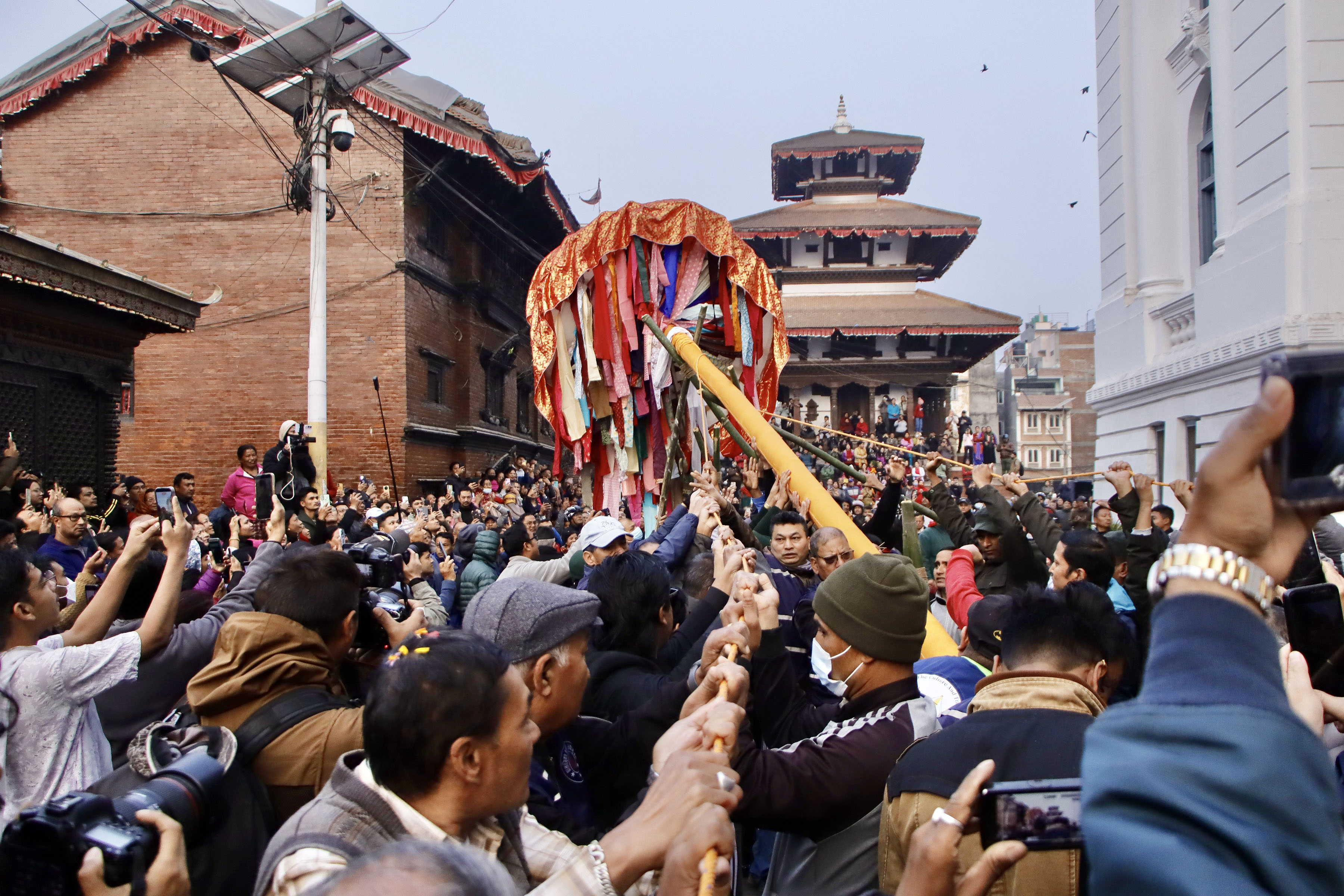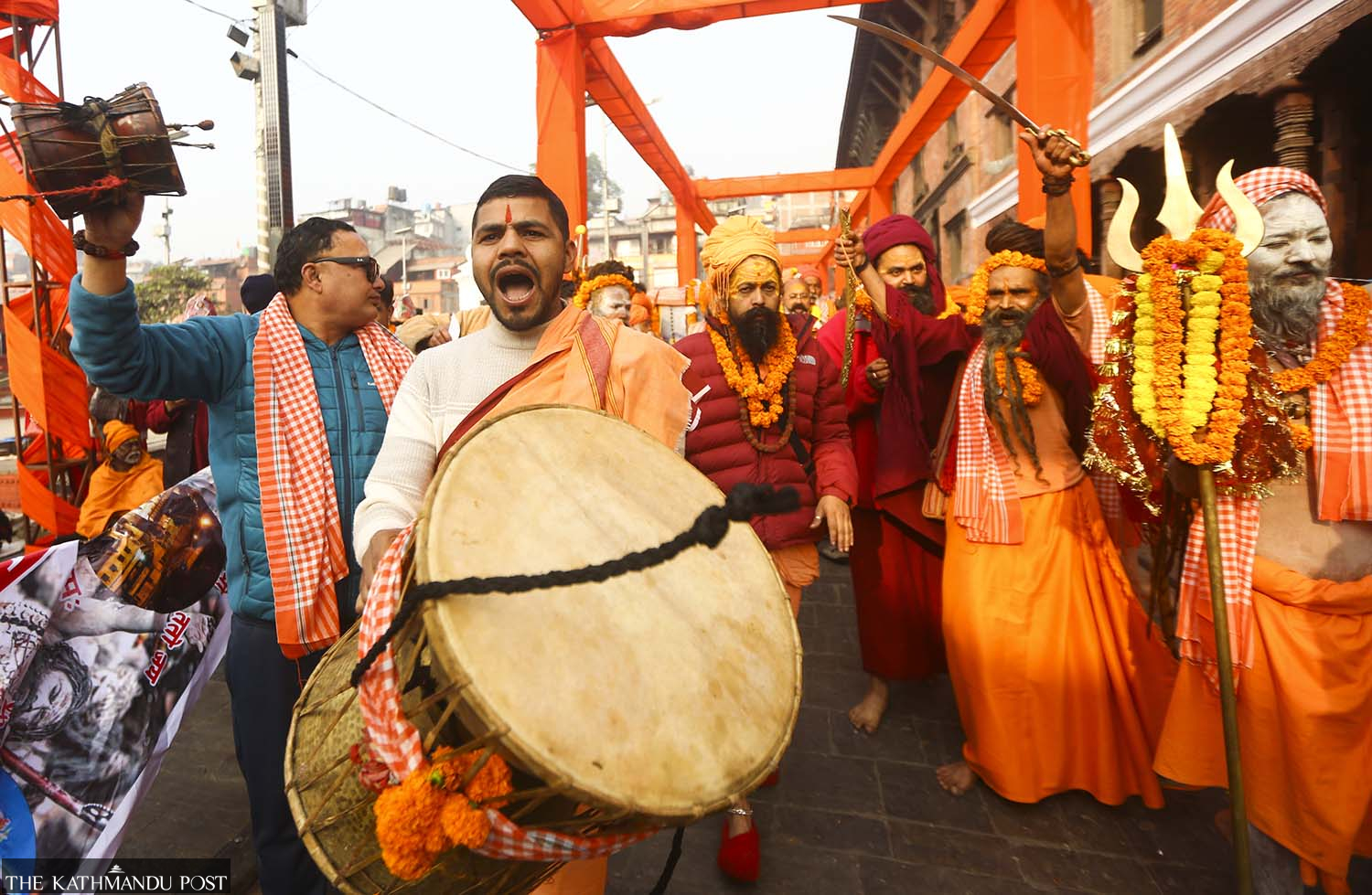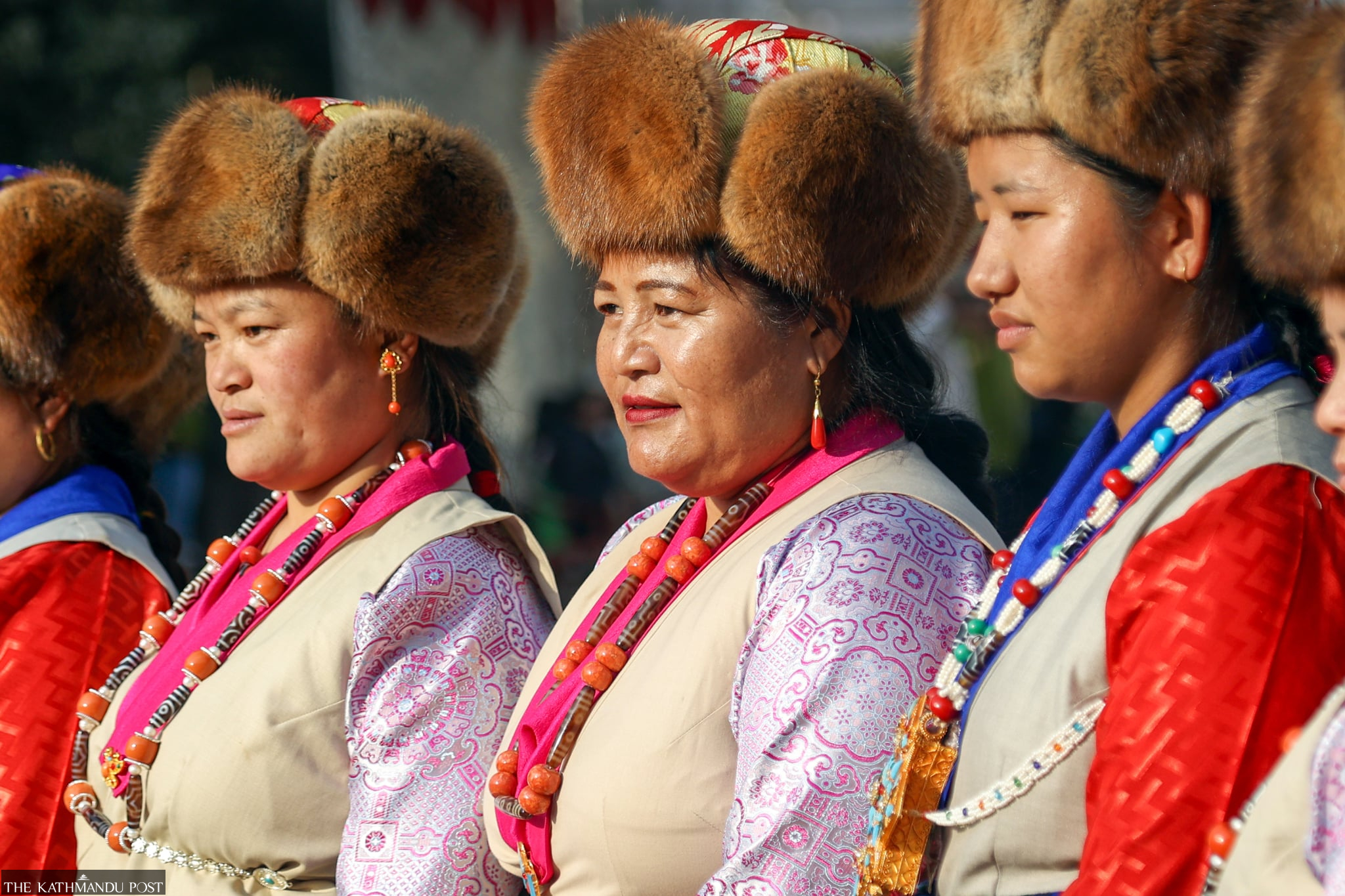Visual Stories
Street vendors evade ban with evening shifts
Many street vendors in Kathmandu are plying their trade when municipal police presence is minimal.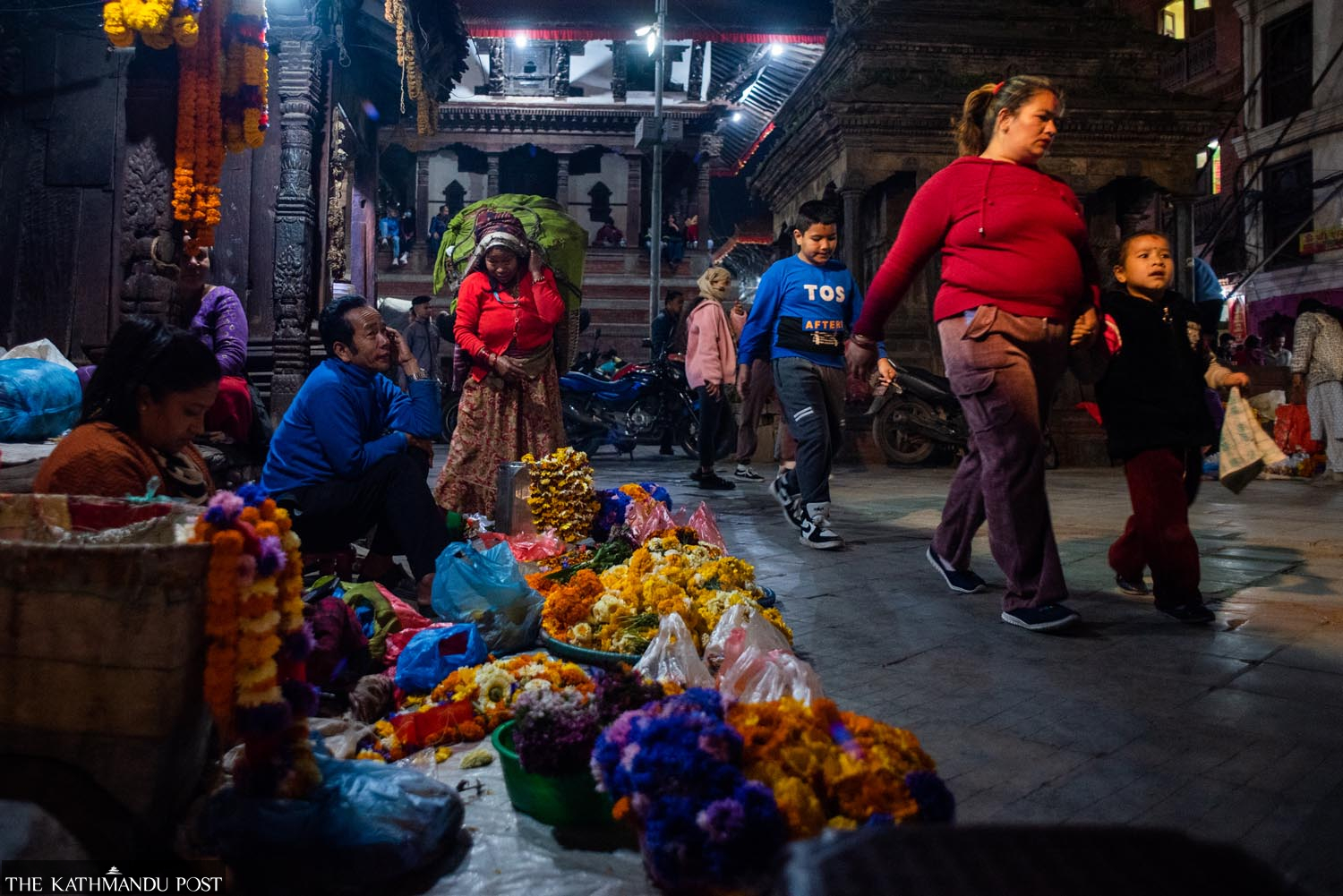
Sukarya Lal Shrestha
In Kathmandu Metropolitan City, street vendors face threats and physical abuse at the hands of the municipal police every day. Scenes of municipal police seizing goods from vendors, resorting to assaults, and forcefully evicting them have become common in the Capital. Pavement dwellers, including vegetable sellers, clothes sellers and fruit sellers, said living in the city has become increasingly unsafe for them.
As the city office has enforced a complete ban on street vending, hawkers have ingeniously shifted their operations to the evening hours where there is a thinner presence of city police.

The street vendors at the busy shopping district of Ason spring into action in the evening, operating typically between 8 pm to 9pm provided there is no presence of city police.
Raju Alam, a vegetable vendor at Ason, expressed frustration as he recounted the numerous times the city police have confiscated his goods. “I’ve had my goods seized over five times,” he lamented. “Now, I operate my shop from 4pm to 8pm.”

Sunita Sunar said the metropolitan city has caused them a lot of distress. Originally from Jumla, Sunar now sells vegetables in the evenings at the Bhedasingh and Kasthamandap areas. “We came to Kathmandu for a better future for our children, but we are facing many hardships,” Sunar said. “The current situation has left us in a dilemma about whether to stay in Kathmandu or return home. We are selling goods amid an atmosphere of fear.”
According to Nabin Manandhar, spokesperson for Kathmandu Metropolitan City, there is currently no plan to designate a place for street vending. “Street vendors are running their businesses on their own now,” Manandhar said. “There are currently no fixed schedules for street vending.”


















 9.83°C Kathmandu
9.83°C Kathmandu

